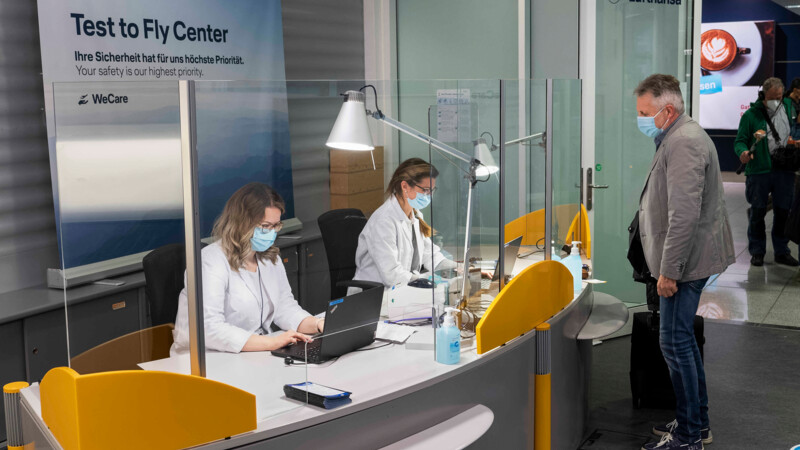"The latest evaluations show that although 64 per cent of all respondents (65 per cent in Germany) back the current lockdown measures, 46 per cent imagine that the life over the next few will return somewhat similar to that before the pandemic," said Prof. Dr. Jonas Schreyögg, Director of HCHE. Although 51 per cent of interviewees have expressed concern, people in Germany rate the economic development best unlike the remainder of respondents in Europe.
A majority of people (65 per cent) in Germany have come out in favour of the latest measures to curb the spread of coronavirus infections and are optimistic about the coming six months, a Europe-wide study led by the Hamburg Center for Health Economics (HCHE) at the University of Hamburg has found. However, interviewees expressed concern about Germany's economic situation. Interviewees were also asked about Christmas with the family and their readiness to be vaccinated. The survey has been done in waves every two to three months since April 2020. The latest results centre were collected from November 5-16, 2020.
65 per cent of Germans support latest measures
Nearly one in two optimistic about Christmas with family
The current restrictions on contact are perceived less drastically in Germany than in other countries, the study found. About 60 per cent expect to have sufficient social contacts over the coming months while people in Portugal and Italy are suffering most from these restrictions. Almost one in two people in Germany is optimistic about celebrating Christmas with their families unlike people in France, Portugal and Italy. Most people are preparing to stay at home over the coming months. Only 26 per cent of Germans, Britons and French (23 per cent across Europe) can imagine travelling during the next six months.
Vaccination readiness highest in north Germany
The readiness to vaccinate came to 57 per cent in November similar to the percentage in September and halted a downward trend noted since April. "It remains uncertain whether herd immunity in the population can be achieved in this way," said Schreyögg. The figures in Denmark and Britain, for instance, are much higher at 71 and 69 per cent respectively. The willingness to be vaccinated also varies considerably within Germany and came to 63 per cent in northern states, 57 and 55 per cent in western and southern states and 52 per cent in eastern states. Asked about their reasons for vaccination, most interviewees expressed a wish to protect themselves and their families from infection. The wish to be rid of the current restrictions by being vaccinated came third. Those who are unsure or opposed to vaccinations expressed concern about possible side-effects most often.
Study’s recommendations
The study also provides recommendations for politics and administration. Katharina Fegebank, Senator for Science, Research and Equality, said: "The scientific findings help politicians to make the right decisions in crises. The data from the HCHE study show clearly where we need to act even more vigorously." The repeated survey shows how people's attitudes are changing as the pandemic continues, said Schreyögg, adding: "At the moment, we find that a campaign is important for broad acceptance among the population, especially with regard to readiness to be vaccinated against COVID-19."
sb/pb
Sources and further information
Corona research at HCHE
The Hamburg Center for Health Economics (HCHE) at the University of Hamburg has been investigating people's attitudes and concerns about the coronavirus pandemic since April 2020. More than 7,000 respondents in Germany, Denmark, France, Italy, the Netherlands, Portugal and Britain have take part in waves of the survey in April, June, September and November. The study is a collaborative project with the Nova School of Business and Economics in Portugal, Bocconi University in Italy and the Erasmus University Rotterdam in The Netherlands. The University of Hamburg is funding the project via the Excellence Strategy.
Hamburg Center for Health Economics (HCHE)
Founded in 2011, around 80 scientists from economics and medicine are researching solutions to healthcare issues at HCHE established by the University of Hamburg and the University Hospital Hamburg-Eppendorf. Apart from interdisciplinary research, HCHE's objectives include scientific excellence with national and international visibility, the derivation of practical implications for policy and decision-makers and a future-orientated education including a separate Master's programme (Health Economics & Health Care Management).
More
Similar articles

Business climate recovers slightly, latest barometer finds

Cross-cluster strategy benefiting healthcare sector

Hamburg Airport assisting Lufthansa with rapid antigen tests
